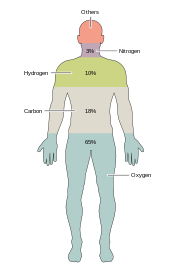maintain physiological functions, the structure of the body, (children, adolescents, pregnant women) and physical activity related to daily activities and having the sport. Source of energy for human food, providing different nutrients such as carbohydrates, proteins and fats.
energy energiaGestosc food this is the amount of energy, expressed in joules (J) and calories (cal) per gram (g) of the product type. The energy value of food determines the amount of fat in it contained primarily because 1 g of this component provides 9 kcal. And 1 g protein 1 g carbohydrates available provide 4 kcal, which is about half as much energy.
Foods with a lower-calorie vegetables, fruits, soups, lean meat, whose energy density is relatively low. Foods high in fat and/or low water content, m.in. chocolate, cakes, fried snacks, nuts, dried fruit is characterized by higher energy density. On the calorific value of food also affects a significant effect the presence of fibre and other ballast substances which, being resistant to digestive enzymes are not degradation in the gastrointestinal tract and are excreted in the feces, while at the same time hinder the digestion of other components of food.
Therefore, consuming products with low energy density can significantly help control calorie intake and at the same time avoid feelings of hunger.
energy
It should be remembered that a significant amount of energy supply alcoholic beverages despite the fact that there is no fat in them and usually contain small amounts of carbohydrate. The exception is for example. sweet wines. 1 gram of ethanol provides 7 kcal.

energy
Sources of energy
For the human body carbohydrates are the most important source of energy. They are the main fuel for the muscles and the brain. Sources of carbohydrates are rich in products such as starch. bread, cereal, rice, potatoes, cereal crops.
The source of energy for the body are also fats and protein, especially in situations where the availability of energy from other sources is limited.
energy
The demand for energy
Different people need different amounts of energy, depending on gender, age, physiological state, mass, growth and body composition and physical activity. The total energy demand throughout the day include the needs related to the basic metabolism (maintenance necessary for the life of the body functions), physical activity, food and metabolism with an increase in the body, pregnancy and lactation.
The more physically active you are, the more energy your body needs. Exercise affects the development of lean muscle mass, which means more demand for energy throughout the day, even during rest.
Energy balance
Body weight depends on the balance between the amount of energy derived from consumed food and beverages and energy expenditure associated with the activity of the body. The constant body weight is maintained when the amount of energy collected is equal to the amount of energy expended.
Excess energy in the diet builds up in the body as fat and leads to an increase in body weight, and consequently to overweight and obesity. It happens that the positive energy balance is growing malnutrition of the organism, related to the lack of sufficient quantity, for example. some vitamins, minerals, fats.
Regular physical activity helps you to achieve energy balance and reduce the risk of obesity and related diseases. Is needed to maintain proper health and fitness of the body. Read more: cara pengobatan penyakit diabetes melitus